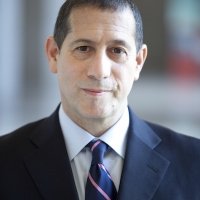U.S. Counterterrorism: From Nixon to Trump – Key Challenges, Issues, and Responses
U.S. Counterterrorism examines the “war on modern terrorism,” from the Nixon Administration into the first year of the Trump administration. The book by two former State Department counterterrorism officials provides an overview of the accelerating evolution of the changing terrorist threats and countermeasures because of the impact of technology, such as the internet and armed drones.
This includes the evolution of the terrorism threat from secular groups with relatively narrow goals, to those with fundamentalist religion broad goals such as the rise of ISIS and the Islamic Caliphate.
The book describes the changes in US policies and responses following 9/11, including the Bush administration’s declaration of the Global War on Terrorism, the military action taken in Afghanistan and Iraq, and expanded CT programs. The authors discuss the challenges facing the Trump administration and also describe key legislation. The book includes a sizeable section listing, with links, major US government counterterrorism policy statements, speeches and testimony.
Edward Marks is a retired senior Foreign Service officer (Minister–Counselor) who has been consulting, lecturing, and writing on terrorism, interagency coordination, United Nations affairs, and complex international emergencies. He has held assignments as the State Department deputy coordinator for counterterrorism and as the Department’s liaison on terrorism issues to the U.S. Pacific Command. During his long career, he served as Chief of Mission to the Republics of Guinea-Bissau and Cape Verde and assignments elsewhere in Africa and Sri Lanka, where he was Chargé d’Affaires. Ambassador Marks graduated from the Universities of Michigan (BA in Political Science, 1956), Oklahoma (MA in Economics, 1976), and the National War College (1981).
Michael B. Kraft is a Washington-based counterterrorism, writer, editor, lecturer and consultant with more than 30 years of experience working on terrorism issues in the State Department, Congress and the private sector. This is his third counterterrorism book. He also co-authored with Ambassador Marks U.S. Government Counterterrorism: A Guide to Who Does What and contributed chapters for several other counterterrorism books as well worked as a consultant on counterterrorism projects. During his 19 years at the State Department Counterterrorism office, Mr. Kraft, among other issues, worked closely with the Justice Department in drafting and enacting counterterrorism legislation. Before joining the State Department, Mr. Kraft served on the Senate Foreign Relations Committee staff, specializing in Middle East and terrorism issues. Previously, he worked as the chief Congressional Correspondent for the Reuters News Agency and for United Press International in Washington, London, and Central Africa. He is a graduate of the University of Michigan, where he was a senior editor on the Michigan Daily newspaper.
Bruce Hoffman (moderator) has been studying terrorism and insurgency for over four decades. He is a tenured professor in Georgetown University’s Walsh School of Foreign Service and until recently was director of its Center for Security Studies and Security Studies Program. Hoffman is also visiting Professor of Terrorism Studies at St Andrews University, Scotland. He previously held the Corporate Chair in Counterterrorism and Counterinsurgency at the RAND Corporation, where he was also director of RAND’s Washington Office and vice president for external affairs. Hoffman was appointed by the U.S. Congress as a commissioner on the 9/11 Review Commission and has been Scholar-in-Residence for Counterterrorism at the Central Intelligence Agency; adviser on counterterrorism to the Coalition Provisional Authority, Baghdad, Iraq; and, an adviser on counterinsurgency to Multi-National Forces-Iraq Headquarters, Baghdad, Iraq. Hoffman’s most recent books include The Evolution of the Global Terrorist Threat (2014); Anonymous Soldiers (2015); and, Inside Terrorism (3rd edition, 2017). Hoffman is currently a Wilson Center Global Fellow, a visiting senior fellow at the Council on Foreign Relations and a senior fellow at the U.S. Military Academy’s Combating Terrorism Center.
Speakers
Moderator

Professor, Edmund A. Walsh School of Foreign Service, Georgetown University; Visiting Senior Fellow, Council on Foreign Relations; Senior Fellow, U.S. Military Academy’s Combating Terrorism Center
Hosted By

History and Public Policy Program
A global leader in making key archival records accessible and fostering informed analysis, discussion, and debate on foreign policy, past and present. Read more
